Navigating the waters of career advancement can be tricky, especially when it comes to delivering the news about a job promotion refusal. Writing a thoughtful and respectful letter can help maintain professionalism while conveying your decision clearly. It's important to express gratitude for the opportunity, acknowledge the efforts of those involved, and offer encouragement for future endeavors. If you're looking for guidance on how to craft a refusal letter that strikes the right balance, keep reading for useful tips and templates!

Gratitude for the Opportunity
The recent job promotion opportunity presented by the management at XYZ Corporation was appreciated immensely, reflecting the company's trust in my contributions and potential. Engaging with dedicated colleagues on various projects, such as the 2023 Product Launch and the Q2 Sales Strategy, has enriched my expertise. While grateful, I have decided to decline the promotion due to personal reasons, including a commitment to ongoing projects and a desire to maintain work-life balance. I look forward to continuing to contribute to the team and support the company's goals.
Clear Reason for Declination
Declining a job promotion can stem from various reasons that reflect personal or professional considerations. For individuals experiencing a significant work-life balance issue, this often arises when the increased responsibilities associated with the promotion might disrupt existing commitments or lead to burnout. For instance, a primary caregiver may prioritize family duties over career advancement, finding that the heightened pressure from elevated roles conflicts with their personal priorities. Additionally, an employee might realize that the new position does not align with their long-term career goals, perhaps due to a shift in company direction or personal values that have evolved over time. In some cases, concerns about the organizational culture or management styles may also play a crucial role in such decisions, especially if they perceive a disconnect from their own working philosophy and the expected leadership approach in the new position. Ultimately, the refusal of a job promotion can serve as a strategic choice, safeguarding one's own values, health, and professional trajectory.
Expression of Commitment
Refusing a job promotion can demonstrate one's commitment to current responsibilities while acknowledging the team's efforts. By focusing on areas such as team collaboration, ongoing projects, and personal development goals, expressed commitment can reinforce a dedication to the organization's success. It's essential to highlight appreciation for the opportunity while setting the stage for future contributions and continuous improvement toward personal and collective objectives.
Offer for Future Consideration
In recent years, job promotions have become pivotal to career advancement and workplace morale within organizations. A promotion, often marked by improved job titles, salary increases, and added responsibilities, signifies recognition of an employee's contributions to the company's goals and values. However, when an employee declines a job promotion, it often signifies a complex decision influenced by various factors such as personal circumstances, work-life balance considerations, or alignment with career aspirations. This refusal prompts management to potentially reconsider the employee's future eligibility for promotions within the organization, aiming to foster an environment of open communication and support for career development paths. It is essential to maintain a positive relationship as both parties navigate the nuances of professional growth and personal priorities.
Positive Closing Statement
A refusal of job promotion can be a difficult message to convey, especially when aiming to maintain a positive relationship. It is crucial to express gratitude for the opportunity and to acknowledge the individual's contributions. Additionally, outlining specific areas for growth or development can provide constructive feedback. Lastly, emphasizing a willingness to support future aspirations fosters a sense of encouragement, leaving the door open for future possibilities within the organization, such as subsequent promotions or new roles that may arise.

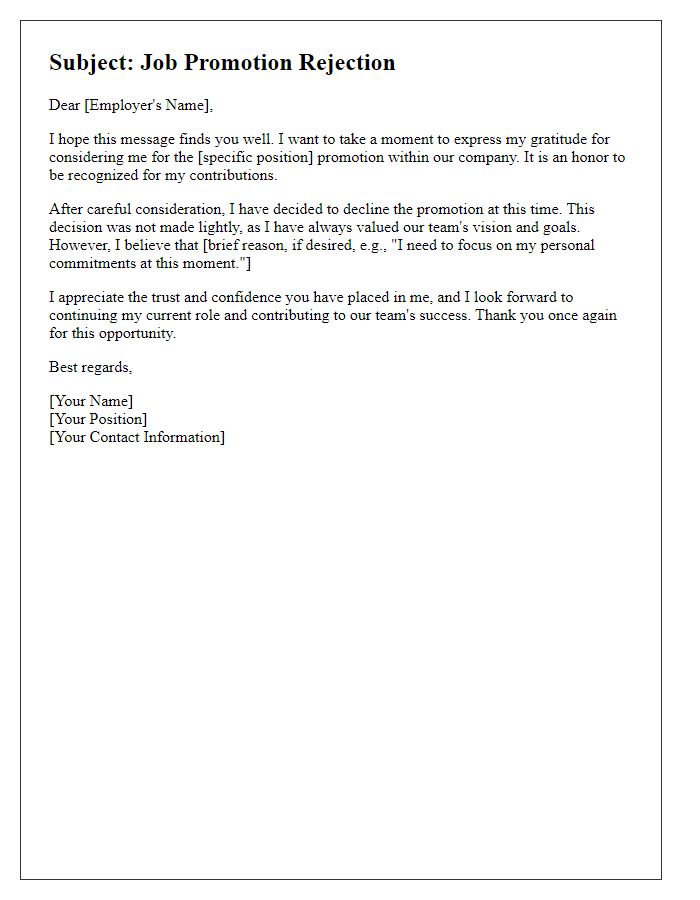
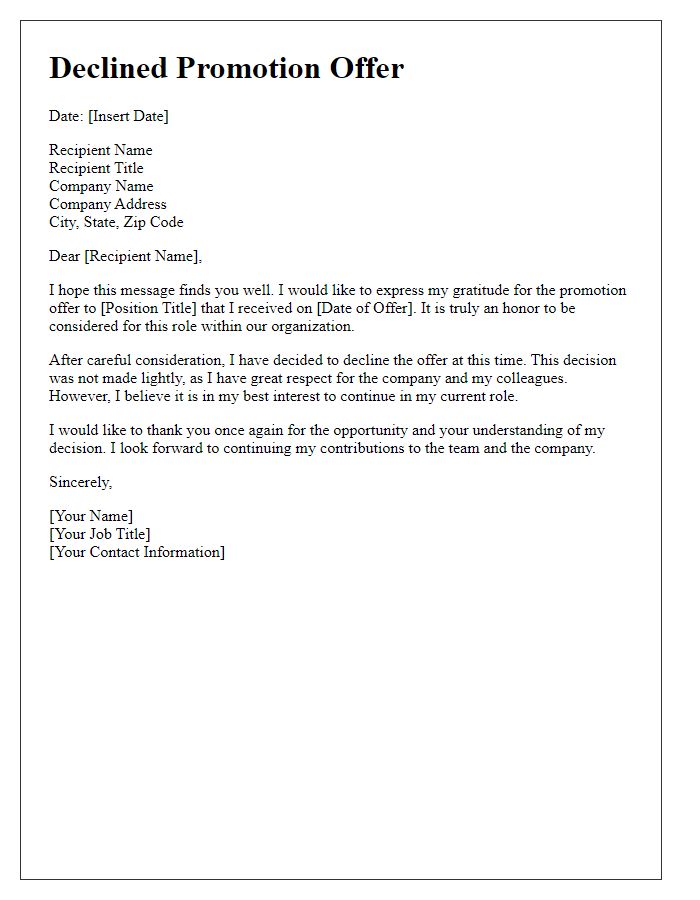
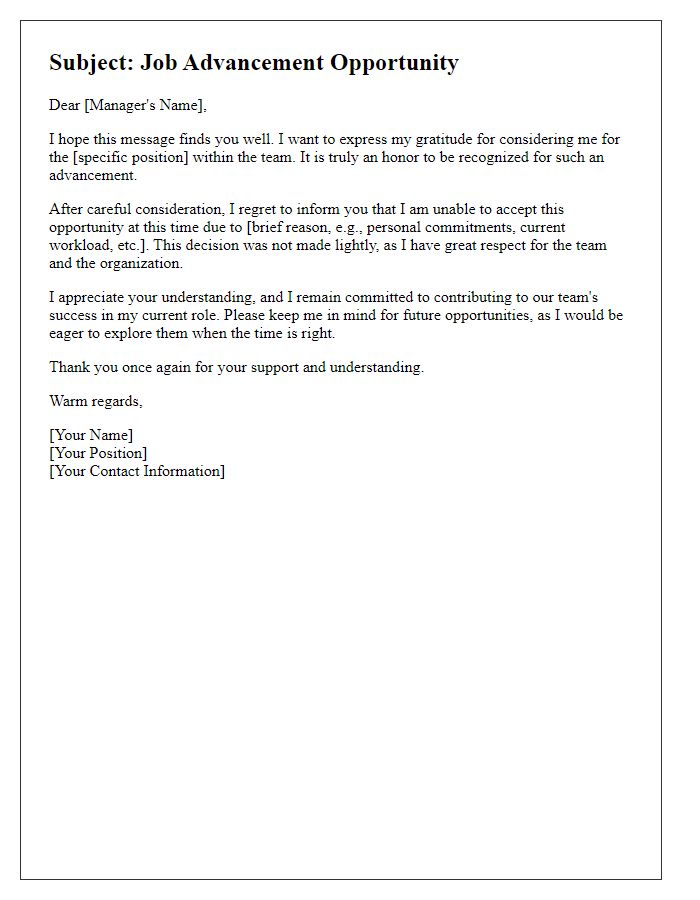
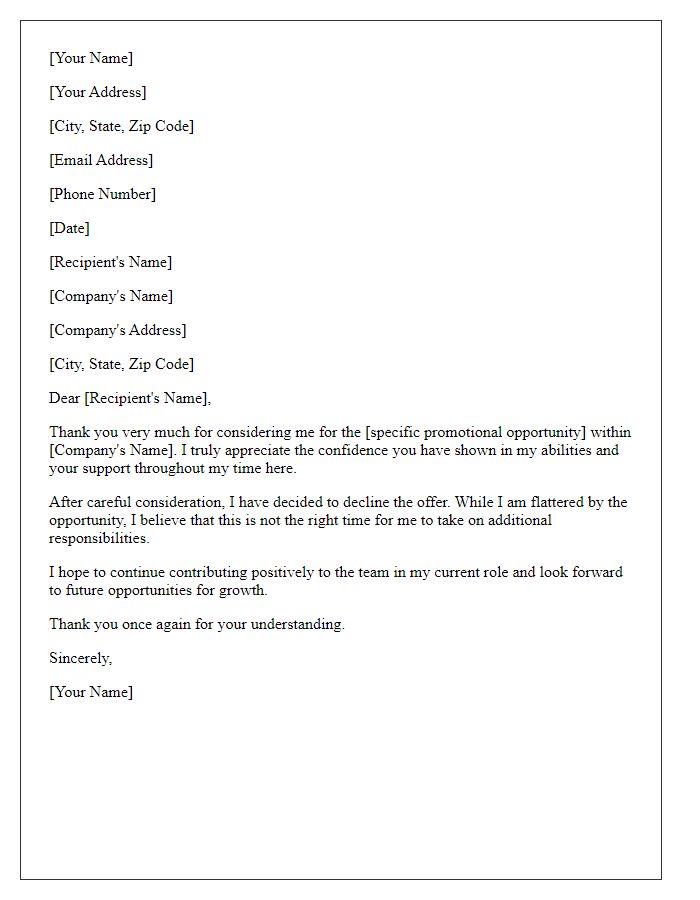
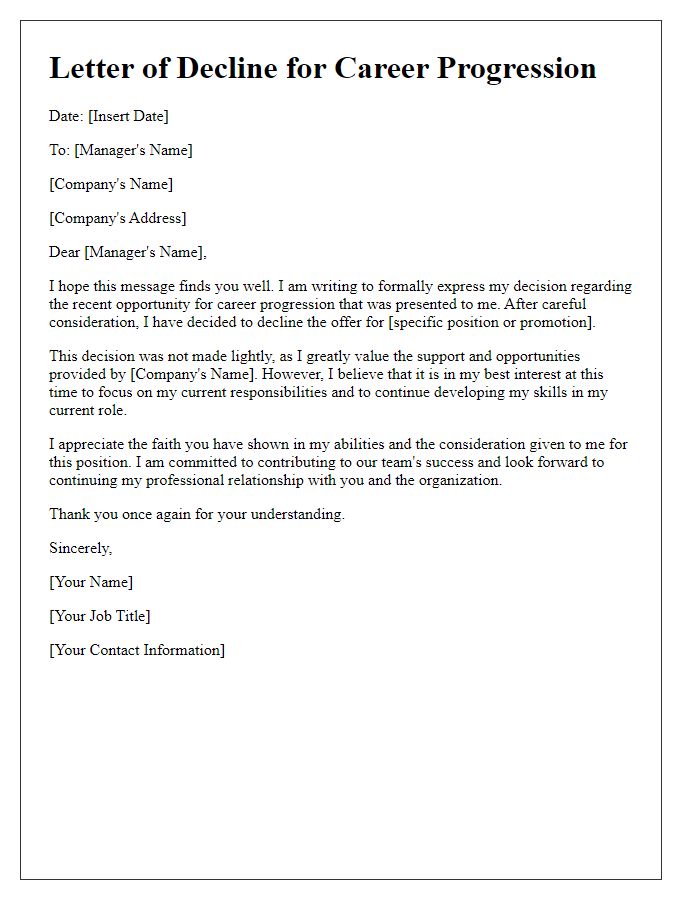

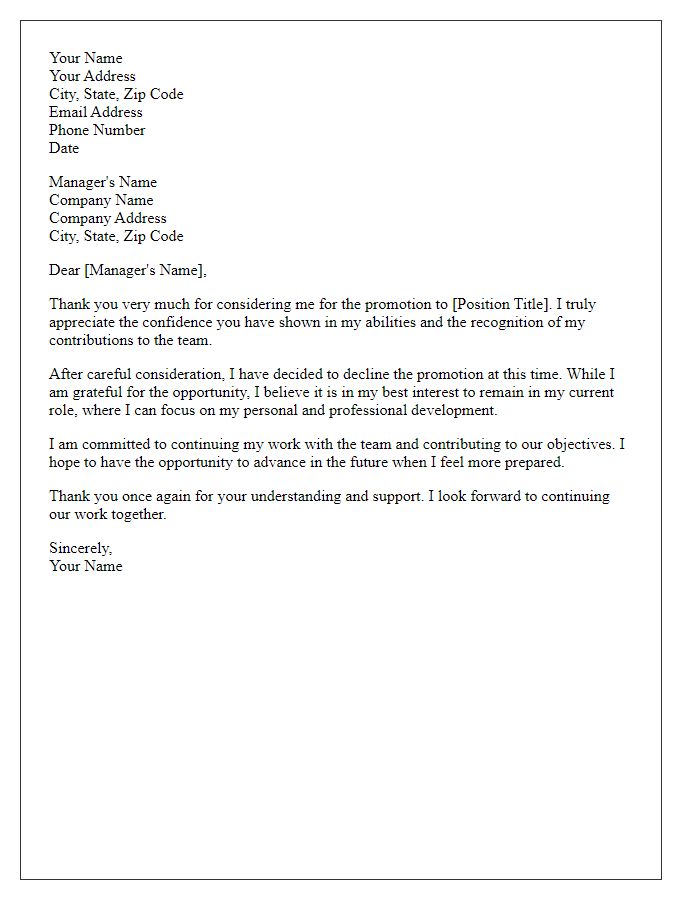
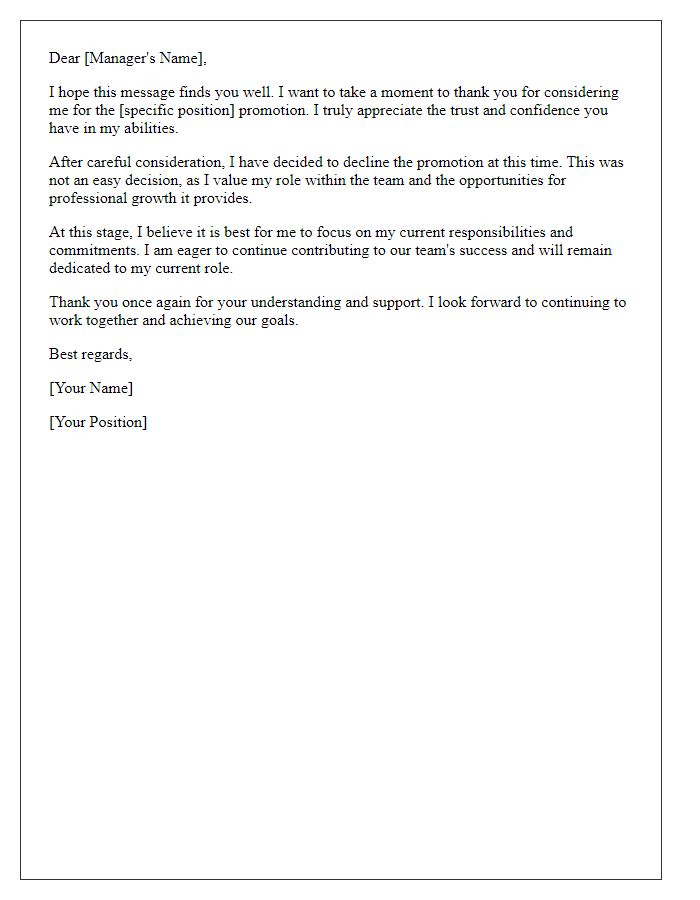
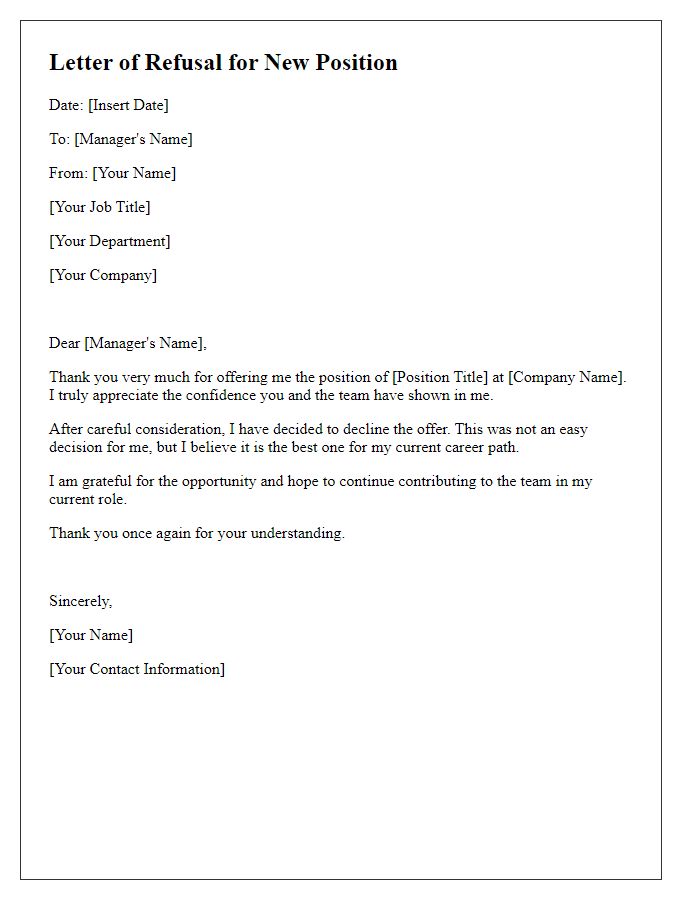
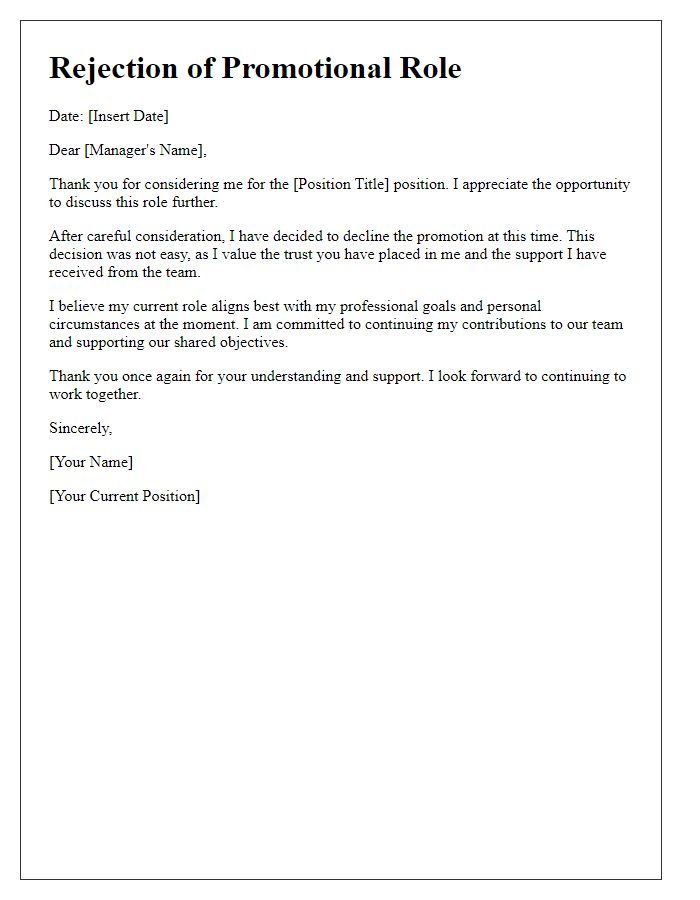


Comments